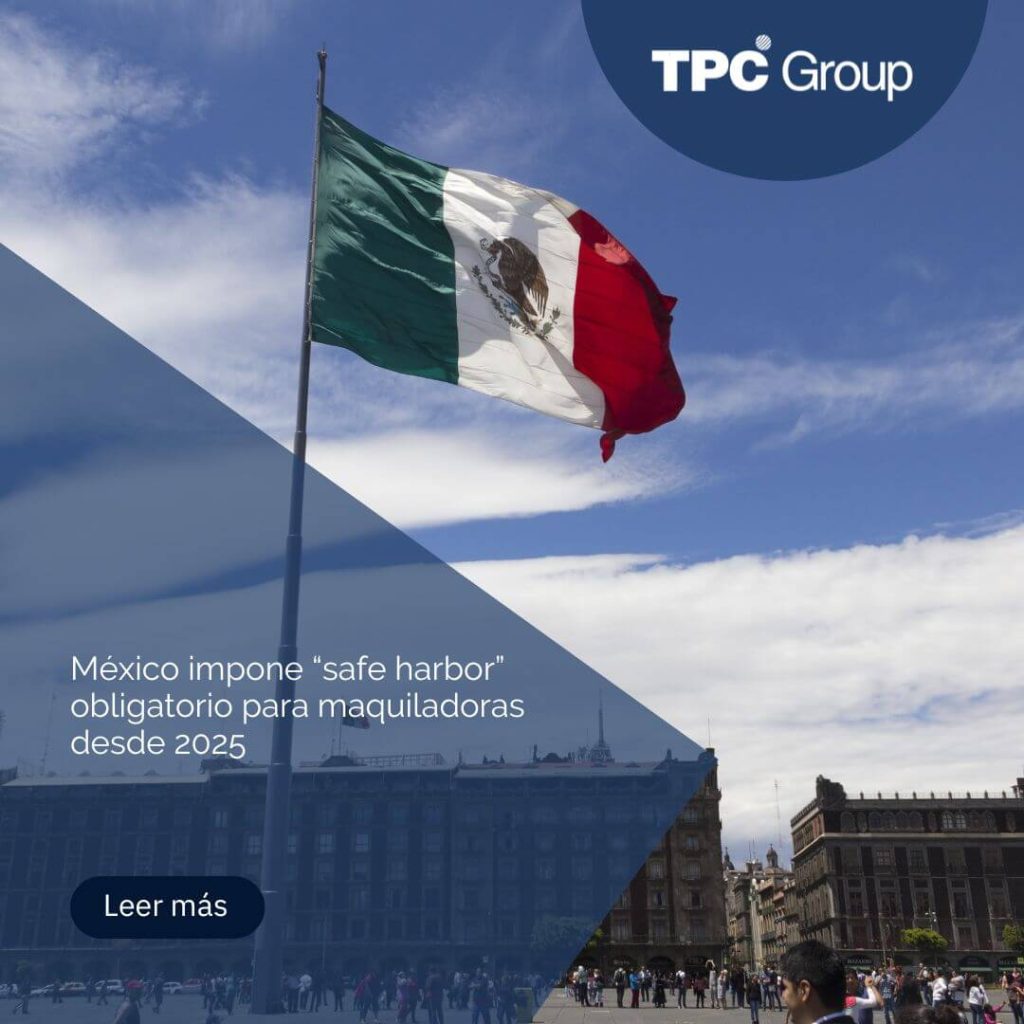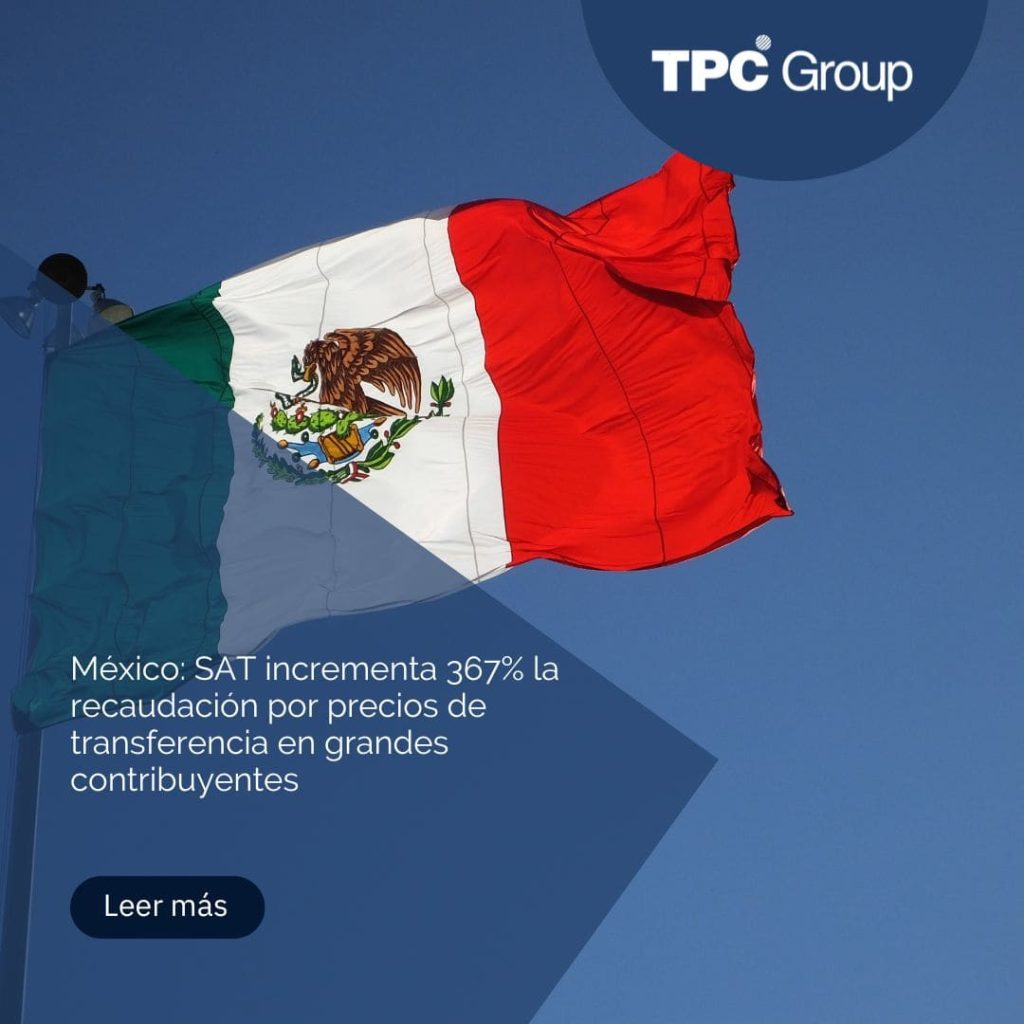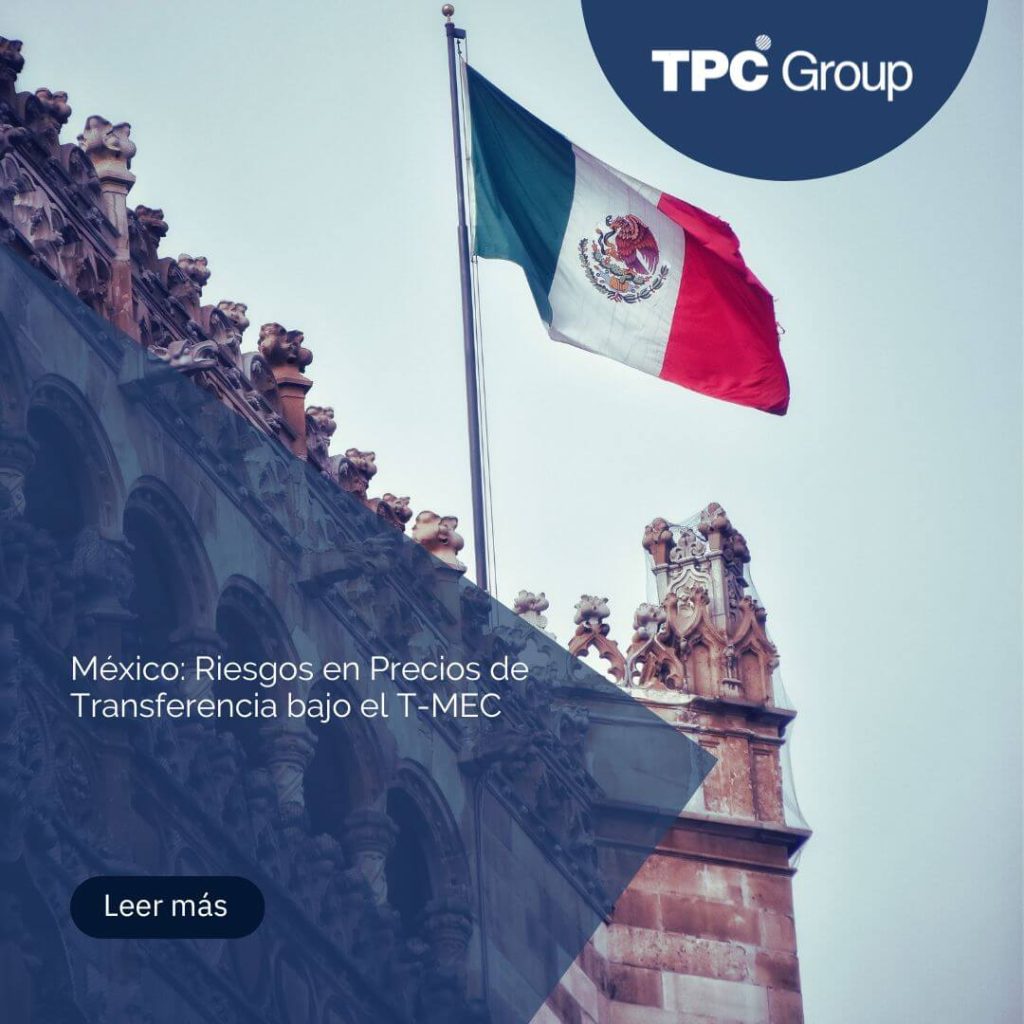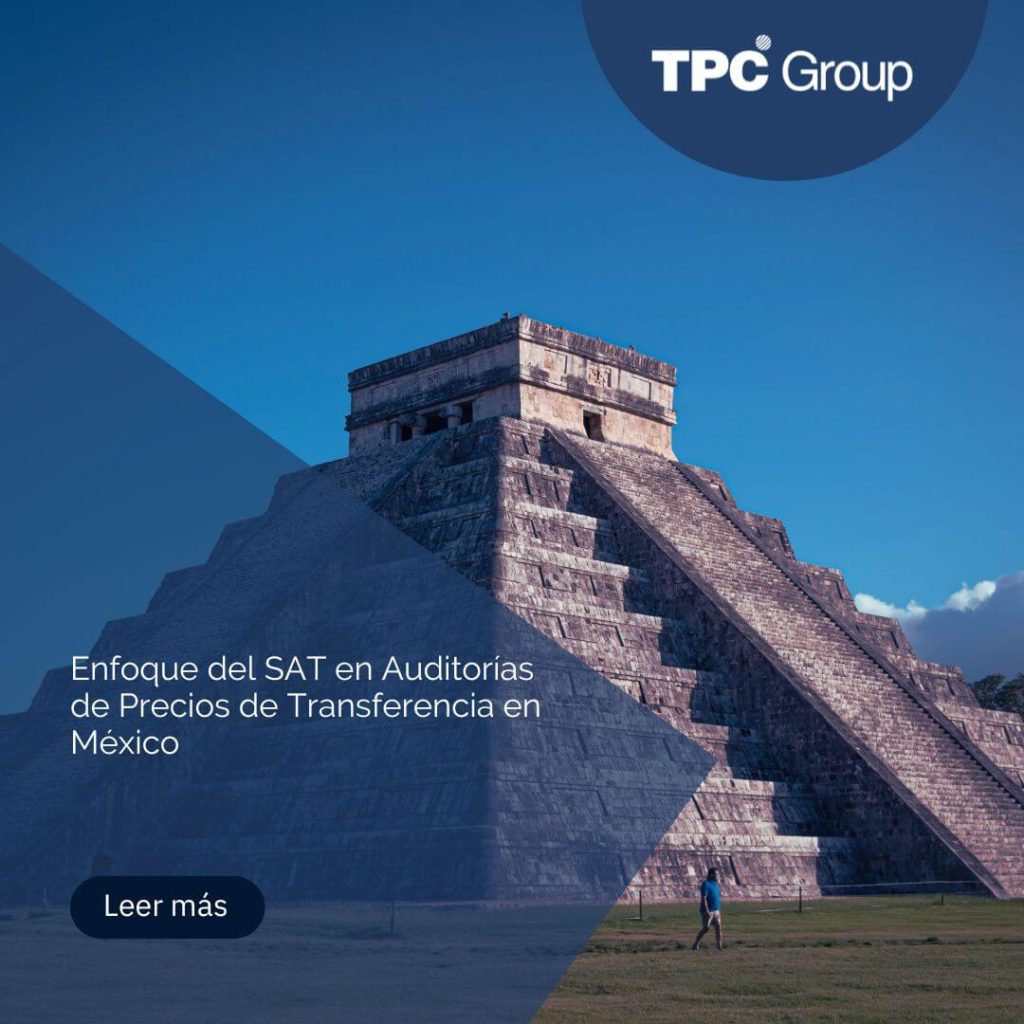Concepto y Regulación en México
Cuando los contribuyentes realizan transacciones entre partes vinculadas deben tener en cuenta que están sujetos a obligaciones fiscales establecidas en la Ley del Impuesto Sobre la Renta (LISR) y el Código Fiscal de la Federación (CFF). Estas obligaciones se suman a las obligaciones correspondientes por ser personas morales contribuyentes del Título II o bien contribuyente persona física perteneciente a Título IV; por precisamente el hecho de celebrar operaciones con partes relacionadas.
Los Precios de Transferencia en México vieron sus inicios en el año 1995, siendo una de los países con mayor antigüedad en la implementación de regulaciones de precios de transferencia. Desde ese momento, la legislación en dicha materia se ha ido reformando y ampliando.
México ha adecuado su normativa tributaria de acuerdo a los lineamientos señalados en las acciones del Plan BEPS (Base and Erosion and Profit Shifting) de la Organización para la Cooperación y Desarrollo Económico (OCDE), a fin de combatir la elusión o evasión fiscal.
De estos lineamientos, cobra gran importancia la adopción realizada por México de la acción 13 del Plan BEPS, en cuanto a la documentación comprobatoria, lo cual permite a las distintas Agencias Fiscales del mundo poder intercambiar información de grupos multinacionales a través de los Reportes País por País (CBC Report).
Actualmente, este régimen se encuentra regulado en los Artículos 76, 76-A, 179 y 180 de la Ley del Impuesto Sobre Renta (LISR), así como en algunos artículos del Código Fiscal de la Federación.
Asimismo, cuenta con una legislación especial en esta materia en cuanto a la maquila e hidrocarburos.
Principio de Plena Competencia: Concepto
También denominado principio de «Arm’s Length«, es un pilar fundamental para seguir en relación a los precios de transferencia.
Dicho principio señala que los precios pactados entre partes relacionadas deberán pactarse a valor de mercado, es decir tal como lo hubiesen realizado partes independientes.
En cuanto a la legislación mexicana, establece una definición sobre precios de mercado específicamente en el Título VI – Capítulo II, Artículo 179 penúltimo párrafo de la Ley de Impuesto Sobre la Renta (LISR):
«(…) Se entenderán como precios de mercado, los precios y montos de contraprestaciones que hubieran utilizado con o entre partes independientes en operaciones comparables o cuando al contribuyente se le haya otorgado una resolución favorable en los términos del artículo 34-A del Código Fiscal de la Federación.»
Dicha resolución favorable en mención otorgada por el SAT está condicionada al cumplimiento de requisitos que demuestren que las operaciones objeto de resolución se realizaron a precios o montos de contraprestaciones que hubieran utilizado partes independientes en operaciones comparables.
Asimismo, el principio de plena competencia también se menciona en los siguientes apartados de la LISR:
Título II De las Personas Morales – Capítulo IX De las Obligaciones Morales – Artículo 76 fracciones IX y XII.
Título IV De las personas físicas Disposiciones Generales – Artículo 90, Párrafo 11.
Título V De los residentes en el extranjero con ingresos provenientes de fuente de riqueza ubicada en territorio nacional – Artículo 153, segundo párrafo.
Título VI De las entidades extranjeras controladas sujetas a regímenes fiscales preferentes, de las empresas multinacionales y de las operaciones celebradas entre partes relacionadas – Capítulo II De las empresas multinacionales y de las operaciones celebradas entre partes relacionadas – Artículo 179, primer párrafo de la Ley de Impuesto Sobre la Renta.
Criterios para identificar empresas relacionadas o vinculadas
De acuerdo los párrafos 5 al 7, del Artículo 179 de la LISR, se considerará que una o más son partes relacionadas cuando:
Se considera que dos o más personas son partes relacionadas, cuando una participa de manera directa o indirecta en la administración, control o capital de la otra, o cuando una persona o grupo de personas participe directa o indirectamente en la administración, control o capital de dichas personas.
Tratándose de asociaciones en participación, se consideran como partes relacionadas sus integrantes, así como las personas que conforme a este párrafo se consideren partes relacionadas de dicho integrante.
Se consideran partes relacionadas de un establecimiento permanente, la casa matriz u otros establecimientos permanentes de la misma, así como las personas señaladas en el párrafo anterior y sus establecimientos permanentes.
Sociedades o entidades sujetas a regímenes fiscales preferentes respecto del contribuyente residente en México.
Métodos de Precios de Transferencia en México
Para el análisis de las transacciones entre partes vinculadas, la legislación mexicana ha dispuesto de seis métodos, los cuales según el Artículo 180 de la LISR, son los siguientes:
- Método de precio comparable no controlado.
- Método de precio de reventa.
- Método de costo adicional.
- Método de partición de utilidades.
- Método residual de partición de utilidades.
- Método de márgenes transaccionales de utilidad de la operación.
Asimismo, se señala una jerarquía en cuanto a la utilización de los métodos, indicando que se deberá aplicar en primer término el método de precio comparable no controlado, siendo que solo se podrán utilizar los demás métodos en la medida que el primero no sea el apropiado.
Asimismo, señala también el artículo 180 de la LISR la prelación de métodos cuando el PCNC se ha descartado:
«(…) Deberá demostrarse que el método utilizado es el más apropiado o el más confiable de acuerdo con la información disponible, debiendo darse preferencia a los métodos previstos en las fracciones II (Precio de reventa) y III (Costo Adicional) de dicho artículo.»
Criterios de Comparabilidad
Acorde al tercer párrafo del Artículo 179 de la Ley, a fin determinar si una operación entre partes relacionadas es comparable con una realizada por partes independientes, se tendrá en cuenta los siguientes criterios de comparabilidad:
- Características de las operaciones.
- Las funciones o actividades, activos y riesgos asumidos en las operaciones.
- Los términos contractuales.
- Las circunstancias económicas.
- Las estrategias de negocios.
Por otro lado, es importante mencionar que a partir del ejercicio fiscal 2022, el mismo artículo en su cuarto párrafo señala que se deberá de utilizar la información financiera de las empresas seleccionadas como comparables del ejercicio fiscal corriente al ejercicio fiscal bajo análisis del contribuyente y únicamente cuando los ciclos de negocios o aceptación comercial de un producto del contribuyente cubran más de un ejercicio, se podrá considerar información de operaciones comparables correspondientes a dos o más ejercicios, anteriores o posteriores.»
Análisis funcional:
De acuerdo a lo indicado en el artículo 76, fracción IX de la LISR se requiere realizar un análisis funcional en forma dual; es decir los Informes y la Documentación comprobatoria deberán contener la información sobre las funciones, activos y riesgos que asume el contribuyente y las partes relacionadas por cada tipo de operación.
Documentación formal solicitada por la autoridad
De acuerdo a los Artículos 76 y 76-A de la LISR, la documentación comprobatoria, así como las declaraciones juradas informativas que se deberán presentar al Servicio de Administración Tributaria (SAT) son las siguientes:
Declaración informativa de operaciones con partes relacionadas – Anexo 9 de la Declaración Informativa Múltiple (DIM)
Acorde a la Fracción X del Artículo 76 de la LISR, los contribuyentes deberán presentar el Anexo 9 de la Declaración Informativa Múltiple (DIM) por las operaciones registradas con partes relacionadas tanto nacionales como extranjeras.
La información requerida en esta Declaración abarca detalles de identificación de todas las partes relacionadas, así como el tipo y el monto de las transacciones realizadas con cada una de ellas. Además, se debe proporcionar información sobre la metodología de precios de transferencia utilizada para cada transacción, incluyendo los rangos de valores determinados en caso de que se hayan utilizado comparables. También se solicitan detalles sobre las búsquedas llevadas a cabo en el estudio, los ajustes realizados durante el período y la confirmación de la disponibilidad del estudio de precios de transferencia.
Declaraciones anuales informativas de partes relacionadas:
De acuerdo a lo establecido en el Artículo 76-A de la LISR, en línea con las medidas señaladas en la Acción 13 de BEPS, se adoptaron 3 tipos de declaraciones informativas anuales adicionales para aquellos contribuyentes que celebren operaciones con partes relacionadas señalados en los artículos 32-A, segundo párrafo y 32-H, fracciones I,II, III, IV y VI del CFF así como los contribuyentes establecidos en el artículo 76, fracciones IX y XII y en relación con el artículo 179, primer y último párrafos de la LISR. (Descritos en la sección de este apartado titulada «Obligados conservar y/o presentar las documentaciones comprobatorias y declaraciones informativas»). Dichas Declaraciones son
-
Declaración Informativa Maestra
Deberá contener la estructura organizacional del grupo multinacional del contribuyente, descripción sobre las actividades de las empresas que forman el grupo, descripción de los activos intangibles del grupo, actividades financieras con partes relacionada, así como la situación financiera y fiscal de las empresas del grupo.
-
Declaración Informativa Local
Debe contener la descripción de la estructura organizacional, actividades estratégicas y de negocio, así como de sus operaciones con partes relacionadas, así como la información financiera del contribuyente obligado y de las operaciones o empresas utilizadas como comparables en sus análisis.
-
Declaración Informativa País por País
Debe incluir la información a nivel jurisdicción fiscal sobre la distribución mundial de ingresos e impuestos pagados. Los indicadores de localización de las actividades económicas en las jurisdicciones fiscales en las que opera el grupo empresarial multinacional en el ejercicio fiscal correspondiente y adicionalmente un listado de todas las entidades integrantes del grupo empresarial multinacional.
Es importante destacar que la declaración informativa país por país debe ser entregada por los contribuyentes mencionados en dicho artículo cuando se encuentren en cualquiera de las dos situaciones que se describen a continuación:
- Sean personas morales controladoras multinacionales, entendiéndose como tales aquellas que reúnan los siguientes requisitos:
- Sean residentes en México.
- Tengan empresas subsidiarias definidas en términos de las normas de información financiera, o bien, establecimientos permanentes, que residan o se ubiquen en el extranjero, según sea el caso.
- No sean subsidiarias de otra empresa residente en el extranjero.
- Estén obligados a elaborar, presentar y revelar estados financieros consolidados en los términos de las normas de información financiera.
- Reporten en sus estados financieros consolidados resultados de entidades con residencia en otro o más países o jurisdicciones.
- Hayan obtenido en el ejercicio inmediato anterior ingresos consolidados para efectos contables equivalentes o superiores a doce mil millones de pesos.
-
-
- Sean personas morales residentes en territorio nacional o residentes en el extranjero con establecimiento permanente en el país, que hayan sido designadas por la persona moral controladora del grupo empresarial multinacional residente en el extranjero como responsables de proporcionar la declaración informativa país por país a que se refiere la presente fracción.
-
Asimismo, señala que en los casos en que la Administración tributaria mexicana no pueda obtener la información correspondiente al Informa País por País mediante los mecanismos de intercambio de información, ésta podrá requerir dicha declaración a las subsidiarias de una empresa residente en el extranjero domiciliadas en México o a los residentes en el extranjero que tengan un Establecimiento permanente en México.
Documentación Comprobatoria en México
La Fracción IX del Artículo 76 de la Ley señala que se deberá obtener y conservar la documentación comprobatoria de las operaciones realizadas con partes relacionadas las que demuestren que se efectuaron a valor de mercado. Para ello, la documentación deberá contener:
-
- Datos de identificación de las partes relacionadas.
- Información sobre las funciones, activos y riesgos que asume el contribuyente y las partes relacionadas por cada tipo de operación.
- Información y documentación de las transacciones con partes relacionadas y sus montos por cada parte relacionada y por cada tipo de operación de acuerdo a la clasificación, así como con los datos y elementos de comparabilidad que establece el artículo 179 de LISR.
- Metodología aplicada, incluyendo la información y la documentación sobre operaciones o empresas comparables por cada tipo de operación, así como el detalle en la aplicación de los ajustes que, en su caso, se hayan realizado en los términos del artículo 179, tercer párrafo de la LISR.
No obstante, están exceptuados de la obligación de contar con dicha documentación, los contribuyentes que cumplan alguno de los siguientes requisitos:
-
- Contribuyentes, que realizan actividad empresarial, cuyos ingresos en el ejercicio inmediato anterior no hayan excedido de $13’000,000.00.
- Los contribuyentes cuyos ingresos derivados de prestación de servicios profesionales no hubiesen excedido en dicho ejercicio de $3’000,000.00.
Por otro lado, están obligados a contar con la documentación comprobatoria aquellos contribuyentes que no se encuentren listados en los párrafos a) y b) precedentes; así como aquéllos que se encuentren en el supuesto a que se refiere el penúltimo párrafo del artículo 179 de la LISR y los que tengan el carácter de contratistas o asignatarios en términos de la Ley de Ingresos sobre Hidrocarburos
Obligados a presentar documentación de precios de transferencia
Las condiciones que deben cumplir los contribuyentes obligados se encuentran establecidas en el artículo 76-A Título II, Capítulo IX de LISR, el cual señala a:
Las personas morales que celebren operaciones con partes relacionadas y que se encuentran obligadas a dictaminar sus estados financieros por contador público inscrito según el artículo 32-A del título II del Código Fiscal de la Federación (CFF); es decir cuyos ingresos acumulables declarados en renta en el último ejercicio fiscal inmediato anterior fueran iguales o superiores a $1,779,063,820, así como aquéllas que al cierre del ejercicio fiscal inmediato anterior tengan acciones colocadas entre el gran público inversionista, en bolsa de valores.
El monto de la cantidad establecida en el párrafo anterior se actualizará en el mes de enero de cada año, con el factor de actualización correspondiente al periodo comprendido desde el mes de diciembre del penúltimo año al mes de diciembre del último año inmediato anterior a aquél por el cual se efectúe el cálculo, de conformidad con el procedimiento a que se refiere el artículo 17-A de este Código.
(Párrafo reformado DOF 12-11-2021)
Las personas morales que celebran operaciones con partes relacionadas y que presentan la información sobre su situación fiscal según el artículo 32-H, fracciones I, II, III, IV y VI que se señalan a continuación:
Quienes en el ejercicio inmediato anterior declarado hayan consignado en sus declaraciones normales de renta ingresos acumulables iguales o superiores a $974,653,950.00, así como aquéllos que al cierre del ejercicio fiscal inmediato anterior tengan acciones colocadas entre el gran público inversionista, en bolsa de valores y que no se encuentren en cualquier otro supuesto señalado en este artículo.
El monto de la cantidad establecida en el párrafo anterior se actualizará en el mes de enero de cada año, con el factor de actualización correspondiente al periodo comprendido desde el mes de diciembre del penúltimo año al mes de diciembre del último año inmediato anterior a aquél por el cual se efectúe el cálculo, de conformidad con el procedimiento a que se refiere el artículo 17-A de este Código. (Cantidad del párrafo actualizada por resolución miscelánea fiscal DOF 05-01-2022, 27-12-2022).
- Sociedades mercantiles que pertenezcan al régimen fiscal opcional para grupos de sociedades; es decir que reúnan los requisitos establecidos en el Capítulo VI, Título II de la LISR para ser consideradas como sociedades integradoras e integradas.
- Entidades paraestatales de la administración pública federal.
- Personas morales residentes en el extranjero que tengan establecimiento permanente (EP) en México; únicamente por las actividades que desarrollen en dichos EP.
- Contribuyentes que sean partes relacionadas de los sujetos establecidos en el Artículo 32-A, segundo párrafo del CFF.
- Las personas morales que realicen actividades empresariales con partes relacionadas y cuyos ingresos en el ejercicio inmediato anterior hayan excedido de $13’000,000. También se encuentran obligados los residentes en México que cuentan con operaciones registradas con sociedades o entidades sujetas a regímenes fiscales preferentes, así como los que tengan el carácter de contratistas o asignatarios en términos de la Ley de Ingresos sobre Hidrocarburos. Esto de acuerdo al artículo 76, fracción IX y lo indicado en el penúltimo párrafo del artículo 179 de la LISR.
- Las personas morales que celebren operaciones con partes relacionadas según el artículo 76, fracción XII.
- Las personas morales, las personas físicas y las empresas multinacionales contribuyentes de la LISR que celebren operaciones con partes relacionadas, en relación con el primer y último párrafo del artículo 179 de la LISR.
Vencimiento de precios de transferencia
Cronograma de Presentación por tipo de obligación
| Tipo de obligación | Vencimientos México – Ejercicio fiscal 2023 |
| Declaración Informativa Local | 15 de mayo de 2024 |
| Declaración Informativa Maestra | 31 de diciembre de 2024 |
| Reporte País por País | 31 de diciembre de 2024 |
En cuanto al estudio o la documentación de precios de transferencia, esta deberá ser conservada por el contribuyente, y puesta a disposición de la Administración Tributaria cuando lo solicite a través de comunicación escrita para efectos de revisiones o fiscalizaciones.
De acuerdo a la actualización de la DOF12-11-2021 que modifica el Artículo 76 A de la LISR Los contribuyentes deberán proporcionar anualmente las siguientes declaraciones referente a partes relacionadas (También denominado documentación comprobatoria):
- Declaración informativa maestra de partes relacionadas del grupo empresarial multinacional
- Declaración informativa local de partes relacionadas.
- Declaración informativa país por país del grupo empresarial multinacional.






